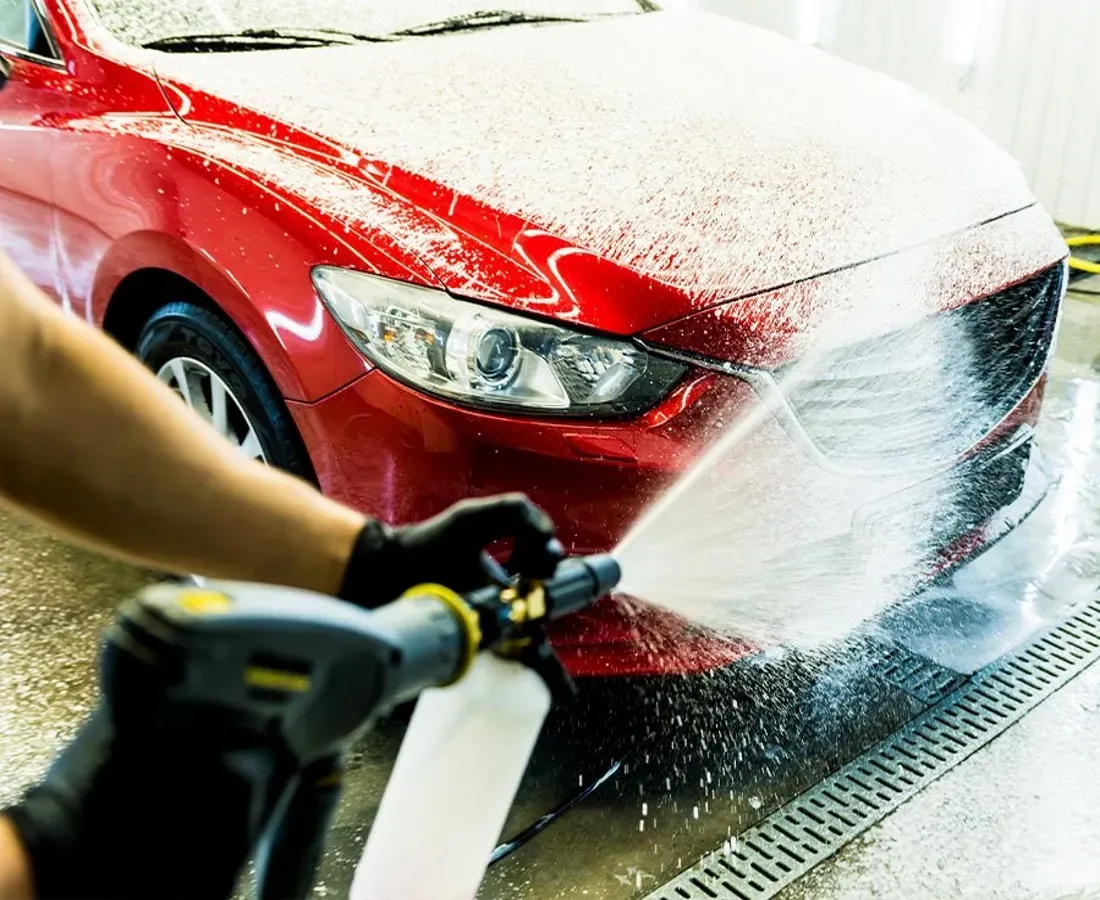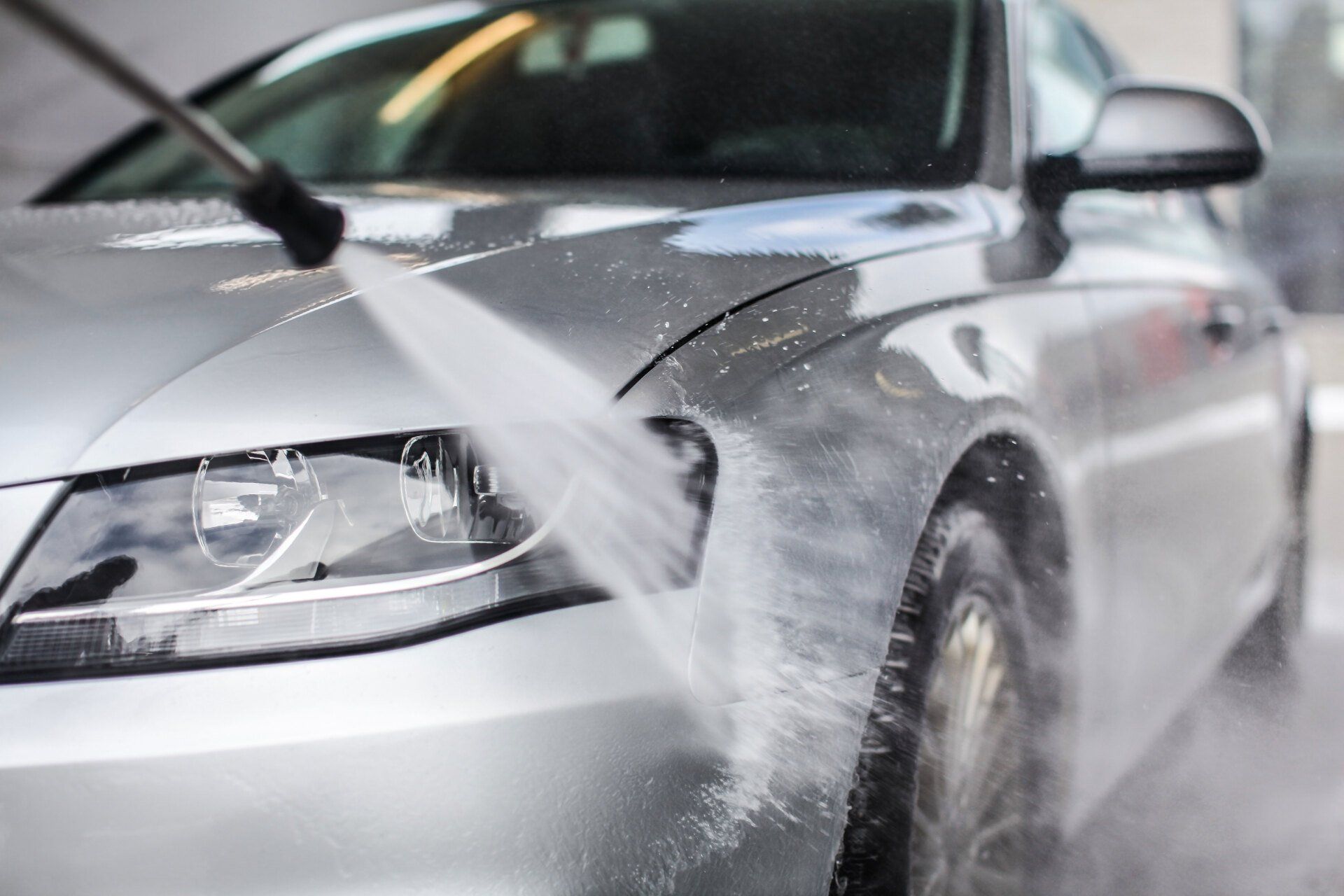Regular Detailing's Connection to Better Fuel Efficiency: Essential Tips for Car Maintenance
SCHEDULE ONLINE GET A FREE ESTIMATEWhen it comes to car maintenance, many people think of oil changes and tire rotations, but there's another important aspect that often gets overlooked: detailing. You might be surprised to learn that regular auto detailing can improve your vehicle’s fuel efficiency. Yes, that's right! A clean vehicle not only looks better on the road but also runs more efficiently. In this article, we'll explore how maintaining a spotless exterior, a clean engine, and well-cared-for tires contributes to better mileage and performance. Whether you're a car enthusiast or simply looking to reduce your fuel costs, these essential tips will assist you in understanding the crucial relationship between detailing and fuel efficiency.
Regular auto detailing enhances fuel efficiency by improving aerodynamics through cleaner surfaces, maintaining the engine for optimal performance, ensuring proper tire inflation, and reducing overall vehicle weight. These combined practices lead to lower rolling resistance and improved vehicle function, allowing for significant savings on fuel costs.
The Connection Between Detailing and Fuel Efficiency
When considering car detailing, it’s easy to think of shiny surfaces and fresh interiors. However, the relationship between detailing and fuel efficiency runs much deeper, touching on mechanics and aerodynamics. When your car’s exterior is free of grime, waxed, and polished, you create a smooth finish that helps reduce air resistance.
But that's not all; other factors also play a critical role in achieving optimal efficiency. Regular engine cleanings help ensure that your engine operates smoothly. When dirt and debris accumulate in engine compartments, they can hinder airflow and lead to reduced efficiency. Cleaning the engine maintains its performance levels while making sure it doesn’t work harder than necessary, conserving fuel over time.
Additionally, attention should be given to tire maintenance during detailing sessions. Under-inflated tires can decrease fuel efficiency due to increased rolling resistance, leading to more fuel consumption than needed. By ensuring that tires are properly inflated and using tire dressing products during detailing services, tire integrity is maintained—allowing for smoother drives and better mileage.
Maintaining cleanliness in undercarriage surfaces can also contribute to improved fuel efficiency. This area often collects dirt or road salt, which adds unnecessary weight to your vehicle. Removing these elements will make your car lighter overall and require less energy to operate.
In the grand scheme of vehicle maintenance, regular detailing offers more benefits than simply making your car look pristine—contributing greatly toward enhanced fuel efficiency and overall performance. Understanding how each aspect plays into improving operational efficiency through cleanliness shows how intertwined vehicle aesthetics and performance truly are.

How Cleaning Impacts Engine Performance
The engine, undeniably the heart of any vehicle, demands consistent attention to keep it humming smoothly. Just imagine a well-oiled machine that's running in peak condition; that’s precisely what regular cleaning can achieve. With ongoing maintenance, you can remove unwanted debris that would otherwise hinder performance and create potential issues down the line.
Step 1: Dust and Debris Removal
Dust and debris often find their way into the engine bay, creating an environment ripe for overheating. When dirt accumulates, it insulates heat instead of allowing it to dissipate effectively. In the worst-case scenario, this can contribute to mechanical failures or even complete breakdowns. By engaging in routine cleaning sessions, you're granting your engine the opportunity to operate cooler, which ultimately reduces stress on various components.
A clean engine runs smoother and more efficiently, translating into improved fuel economy. You’ll be surprised how much better your vehicle performs with just a little attention to this essential area.
Step 2: Checking for Leaks
One key advantage of having a tidy engine bay is the ability to spot leaks more readily. When everything's clean and organized, abnormal fluid spots can easily catch your eye. Oil leaks or coolant drips signal troubles that could escalate if ignored. Oil leaks are especially problematic as they lead to friction between engine parts, which ultimately increases fuel consumption.
Regular inspections after cleaning allow you to address these issues proactively, sustaining your engine's integrity while preserving optimal fuel efficiency.
Step 3: Inspection and Maintenance
Lastly, frequent cleaning provides a perfect opportunity for inspection. While scrubbing away grime, you may discover worn belts, cracked hoses, or loose connections—an observant eye during cleaning can save you significant repair costs later on. This proactive approach ensures everything is functioning as intended; hence, you create a less chaotic environment for your engine to perform at its best.
Each component plays its role in fueling efficiency; therefore, maintaining cleanliness not only keeps the aesthetics intact but also enhances functionality.
Cleaning the engine is a foundational aspect, but other surfaces also play critical roles in fuel efficiency—proper care of exterior surfaces is key to optimizing aerodynamics and overall performance.
Ceramic Coating Benefits
Ceramic coatings are essential tools in any car owner's maintenance arsenal. They serve as crucial barriers against the elements that your vehicle faces every day, in addition to creating that eye-catching shine we are all familiar with.
When you apply a layer of ceramic coating, you're essentially adding a slick shield over your car's paint. Ceramic coatings are incredibly durable and resilient. When applied correctly, they bond with your car's factory paint, creating a fortified barrier that can withstand harsh environmental conditions. Not only do they enhance aerodynamics even more.
Ceramic coatings actively work to protect your vehicle from harmful factors like UV rays, dirt, bird droppings, and road salt.
Effective Air System Cleaning
Keeping your vehicle's air intake and filtration system clean isn’t just about good habits; it’s essential for maintaining the overall health of your engine. When your car draws in dirty air, it can lead to incomplete combustion, resulting in sluggish acceleration and lower fuel economy. Nobody wants that!
To achieve optimal performance, regular inspection and replacement of air filters must become a part of your car care routine. By changing your air filters on time, you give your engine free airflow, which promotes better combustion and eventually increases fuel efficiency.
Cleaning Steps
Consistency is crucial for maintaining the optimal condition of your air system. Here’s a rundown on effective cleaning steps:
Begin by checking the air filter. This should be part of every routine maintenance check—you’ll want to look for any discoloration or debris buildup restricting airflow. If it looks dirty or has significantly changed color from its original state, it's time for a change.
Next, clean out the intake system. This can easily be done with a vacuum or an air compressor. By clearing out accumulated debris, you can ensure smoother airflow into the engine and prevent potential blockages, which can be compared to breathing fresh air into your car.
Finally, always have replacement filters handy. Maintaining a new filter ready for use ensures you won’t delay making necessary upkeep changes when required.





